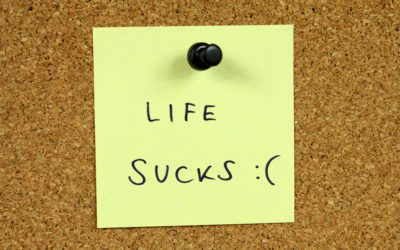That conversation came to mind this week while preparing the launch for my newest book, The Space Within. Whereas past launches have obsessed my thinking and monopolized both my time and that of the team of willfully invisible elves who cobble the shoe leather of my writing into beautifully presented blogs and books, this year the whole process has been remarkably low key.
For example, I’m writing this week’s missive in a darkened hotel room a couple of hundred miles away from home. My teenage daughter is sleeping off ten hours or so of dance classes and competitive routines at a convention, recharging for another day of more of the same. I’ve already read a chapter of Cal Newport’s Deep Work (more on that in a moment), and before my fingers are done for the day they’ll have written this blog, a newsletter, several new pages for my website, half a dozen emails, and copy for the book launch that will go out tomorrow.
But even though I’ve got a lot on, I’m not feeling particularly busy – just productive. And this points to one of the key points in Cal Newport’s book – busyness is a proxy for productivity. In other words, according to Professor Newport, one of the reason we spend so much time on email, social media, and “available” to interruption is because it creates the experience that we’re continually engaged in activity, leading us to the false conclusion that if we’re always busy, we must be being productive.
Yet a more practical definition of “personal productivity” is this:
Your ability to produce results
Notice this has nothing to do with our level of activity, busyness, efficiency, effort, or stress. If we consistently produce quality results over time, we are productive; if we don’t, no matter how much time and effort we are putting into the job, we aren’t.
One of the most interesting examples of this I have come across is the music executive and television producer Simon Cowell. In an interview where Simon was asked to share the secret of his success, he didn’t point to his clearly well-developed work ethic, network, PR team, or any kind of personal genius. He simply said that he tried to make one really good decision each day. If he pulled it off even 100 days of the year, he knew that his career and companies would grow exponentially over time.
In order to cultivate his decision making ability, he tries to stay seriously underemployed when not actively engaged in the necessary activities of running multiple companies and appearing on television hundreds of times a year. So while it may appear that his productivity has led to his ability to “live the good life”, living the good life is one of the keys to his astounding productivity.
Now on the off chance that chartering yachts in the South of France or taking a week off each year to think about stuff a la Bill Gates is outside of your current financial capacity, how can we mere mortals take advantage of this lower key approach to higher productivity?
When I was training people in NLP, they would often report back proudly about which techniques they had used and how cleverly they had used them. The question I always asked was “How’s your client doing?” Surprisingly often, despite the coach or therapist’s perfect use of technique, the client was still struggling.
In business, this translates to keeping your eye on the results you and your team are producing, not all the things you think you have to do (or even all the things you’re doing) to produce them. This runs counter to the management approach that tracks activity instead of results, counting sales calls vs. sales and hours worked vs. results produced. The difficulty in tracking the intangibles that lead to high level results mean that work ethic often gets elevated above productivity. Which is kind of like rewarding the hare for running three times as many miles as the tortoise in the process of losing the race.
The simple rule of thumb for higher productivity is this:
You get more of what you focus on.
Focus on your to-do list and watch it grow; focus on results and watch them happen.
One caveat:
None of this is to say that if you want to be productive at a high level, you won’t have to put in the hours. I don’t know anyone who consistently produces quality results over time who doesn’t. But whether those hours are experienced as hard work or even busyness is nothing more than a reflection of your state of mind.
The same teenager who struggles to focus on school work for more than ten minutes at a time can lose themselves for hours in online gaming, making music, doodling in a notebook or traveling through time and space in the pages of an epic novel. The problem is almost never in their brain but rather in the way they’re using their mind.
So here are a few reflective questions to get you started on the road to less busyness and more productivity. By looking in the direction they’re pointing, you’re likely to get some insights for yourself into how you can get more done with less unnecessary effort and struggle:
1. Think about some times in your life where your effort was disproportionate to your results – either you put in a ton of work to no avail or you felt like you barely did anything and the results came pouring in.What do you make of that discrepancy? Were they random flukes or could there be a larger principle at work?
2. How is your experience of work different when you are fully engaged to when you are distracted? How could you cultivate the experience of full engagement? (It’s sometimes easier to answer that question by first answering “How could I cultivate the experience of being more distracted while I work?”)
3. If my productivity were the result of making higher quality decisions (i.e. “one good decision a day”), how might I design my day differently? What states of mind would be of higher value to me? How can I cultivate those higher quality states of mind?
Have fun, learn heaps, and happy exploring!
With all my love,
![]()










